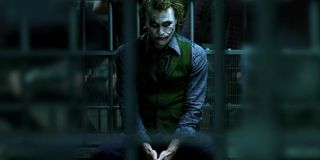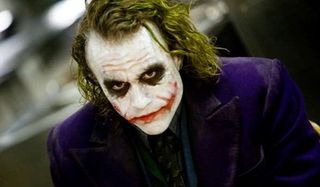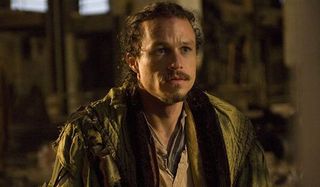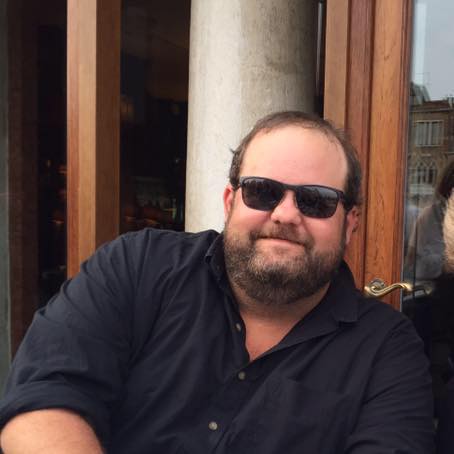Heath Ledger's Final Days: The Events Leading Up To His Death

In 2008, when Heath Ledger overdosed on a cocktail of prescription pills, he was at the pinnacle of his career. He had been nominated an Oscar in 2005 for his portrayal of Ennis Del Mar in Brokeback Mountain. In 2007, he was one of seven actors to portray Bob Dylan, in another award winning performance in I’m Not There, and of course, there was his upcoming performance as The Joker in Christopher Nolan’s The Dark Knight, a role that would bring widespread acclaim and even more fame. Sadly, he would experience none of it as he tragically died of a drug overdose while The Dark Knight was in post-production, at age 28, on January 22, 2008.
For months before his death, as he was working on what would be his final performance in The Imaginarium of Doctor Parnassus, Heath Ledger had what some of his co-stars and friends described as “walking pneumonia.” Ledger was having a lot of trouble sleeping and he was mixing up a cocktail of sleeping pills and other prescription drugs in a desperate attempt to get some rest.
Sadly, the pills weren’t helping very much. Heath Ledger’s friend, Gerry Grennell, lived with him for a time in those last couple months, and he told People Magazine:
I would hear him wandering around the apartment and I’d get up and say, ‘Come on, man, get back to bed, you have to work tomorrow.’ He said, ‘I can’t sleep, man.’
Heath Ledger’s downward spiral had begun months earlier when his partner and mother of his then-two-year-old daughter, Michelle Williams, broke off their relationship and kicked him out of their house in Brooklyn. The reason for the breakup has never been fully revealed by Williams, but most reports are that she was fed up with Ledger’s lifestyle and drug abuse.

After their breakup, Heath Ledger moved into an apartment in SoHo, in Manhattan. It was there that he would take the lethal combination of drugs that caused his accidental overdose. When he moved, Ledger was working on what would become the defining role of his career as The Joker in The Dark Knight. His immersion into the role and his almost insane commitment to the character clearly took a lot out of him, physically and mentally. He wanted his performance to be unpredictable. His director in The Dark Knight, Christopher Nolan, said of his performance:
A lot of what Heath did, he would discuss with me, but in terms -- he'd give me hints about what he was going to do, or we would talk about it a bit, and I would try and be an audience for him or sort of gauge with him what he was doing. But a lot of it was about unpredictability, and I think he wanted to play his cards a little close to the chest.
It was during the filming of The Dark Knight that Ledger’s illness and insomnia got worse, and those close to him got more concerned about his mental state. That said, his sister, Kate, whom he was very close to, disagrees that the role played a part in his death, saying:
Honestly it was the absolute opposite. He had an amazing sense of humor, and I guess only his close family and friends really knew that. But he was having fun. He wasn't depressed about The Joker.
Kate was also one of the last people to speak to Heath Ledger, on a phone call the night before he was found dead from a combination of oxycodone, hydrocodone, diazepam and doxylamine. She said he showed no signs of depression and there wasn't any hint that he might be suicidal.
CINEMABLEND NEWSLETTER
Your Daily Blend of Entertainment News
As is the case in any situation like this, there has been and probably always will be speculation about Heath Ledger’s overdose. Questions like whether the overdose was on purpose, was he trying to kill himself that dark night in the winter of ’08? The answer from most of those close to him has been a resounding “no.” His father blames his son for his own death, but doesn’t think it was suicide, saying:
It was totally his fault. It was no one else's -- he reached for them. He put them in his system. You can't blame anyone else in that situation. That's hard to accept because I loved him so much and was so proud of him. His sister was on the phone to him the night before telling him not to take the prescription medications with the sleeping tablets. He said: 'Katie, Katie, I'm fine. I know what I'm doing.' He would have had no idea.
Heath Ledger’s father has spent the last decade warning people of the dangers of prescription pills like the kind Ledger overdosed on.

Today, a decade after Heath Ledger’s tragic overdose, his legacy still looms large. Of course, he won a posthumous Oscar for his brilliant portrayal of The Joker in the Dark Knight and in the years since, the praise for Ledger with that role and his others, like his performance in Brokeback Mountain, have only grown louder.
The legacy of his overdose also lives in on the work his father has done, and sadly, in how it has effected Michelle Williams and their daughter. Williams has recently seemed to have found peace with his tragic death, even if she may never understand it fully. In an interview with Vanity Fair, she said:
In a strange way, I miss that year, because all those possibilities that existed then are gone. It didn’t seem unlikely to me that he could walk through a door or could appear behind a bush. It was a year of very magical thinking, and, in some ways, I’m sad to be moving further and further away from it. … I’ve found meanings around the circumstance [of his death], but the actual event itself still doesn’t… I can’t find a meaning for it.
Like so many of the brightest burning stars, like River Phoenix, Philip Seymour Hoffman, Chris Farley, and many others, Heath Ledger’s star burned out far quickly because of drugs, but his legacy never will.

Hugh Scott is the Syndication Editor for CinemaBlend. Before CinemaBlend, he was the managing editor for Suggest.com and Gossipcop.com, covering celebrity news and debunking false gossip. He has been in the publishing industry for almost two decades, covering pop culture – movies and TV shows, especially – with a keen interest and love for Gen X culture, the older influences on it, and what it has since inspired. He graduated from Boston University with a degree in Political Science but cured himself of the desire to be a politician almost immediately after graduation.
Most Popular



